

After years of surging violence, Baltimore’s top prosecutor says the tide is finally turning — because his office is taking repeat violent offenders off the streets.
"We had to let the criminal element know that it was a new day, that there was accountability and that you will go to prison," said Baltimore City State’s Attorney Ivan Bates told Fox News Digital.
Bates said his crime-fighting platform was built around one promise: go after the people doing the most damage.
"When we came into office two years ago, I ran on a platform of going after repeat violent offenders… those were the individuals that we knew were causing the terror in our communities," he said.
BALTIMORE RESIDENTS REVEAL WHAT CHANGES THEY WANT TO SEE TO COMBAT CRIME AMID NATIONAL GUARD THREAT
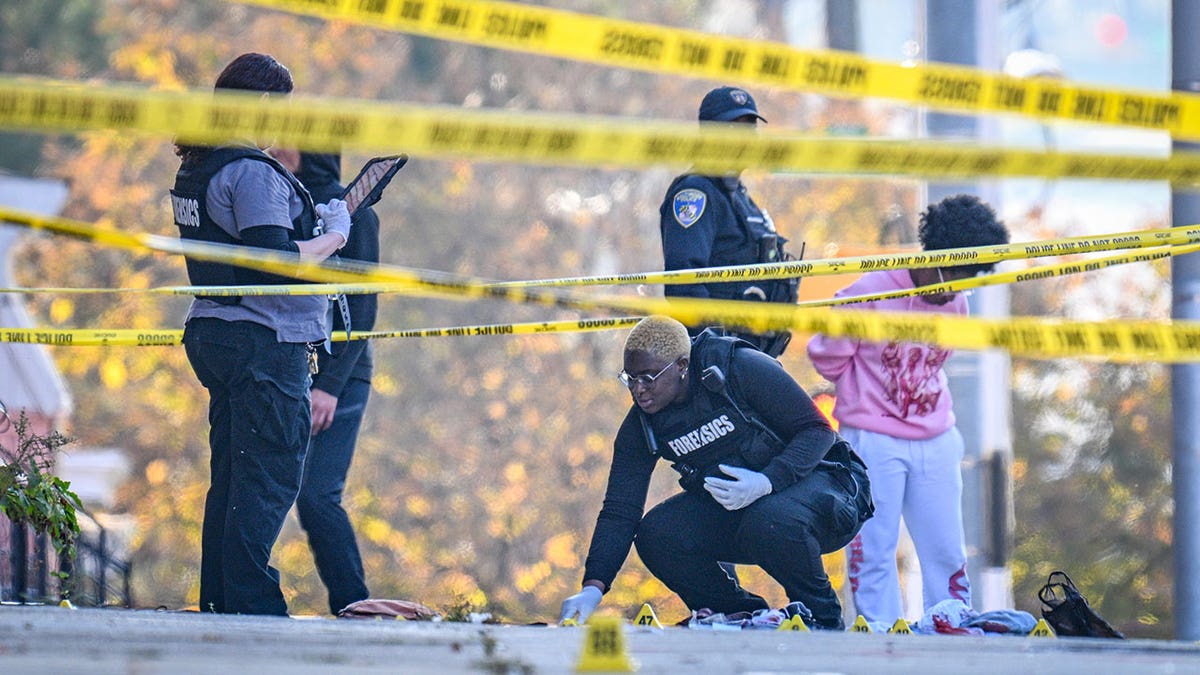
A Baltimore Police forensics technician documents the scene where a man was fatally shot by police, on Nov. 7, 2023, in Baltimore. (Jerry Jackson/The Baltimore Sun via AP, File)
"If you are a violent repeat offender, you are our number one target, our number one focus, and we need to remove you from the street," Bates continued.
According to Bates, there were between 5,000 and 6,000 such offenders in the city. His office zeroed in on illegal gun cases involving convicted felons, using a powerful tool Maryland law already provided.
"In Maryland, if you carry a gun and you’re a repeat violent offender, the state’s attorney’s office could invoke a count that’s a mandatory minimum, which means that you would go to prison a minimum of five years without the possibility of parole," Bates explained. "It’s a minimum mandatory. The previous administration did not invoke those charges, accounts. We did."
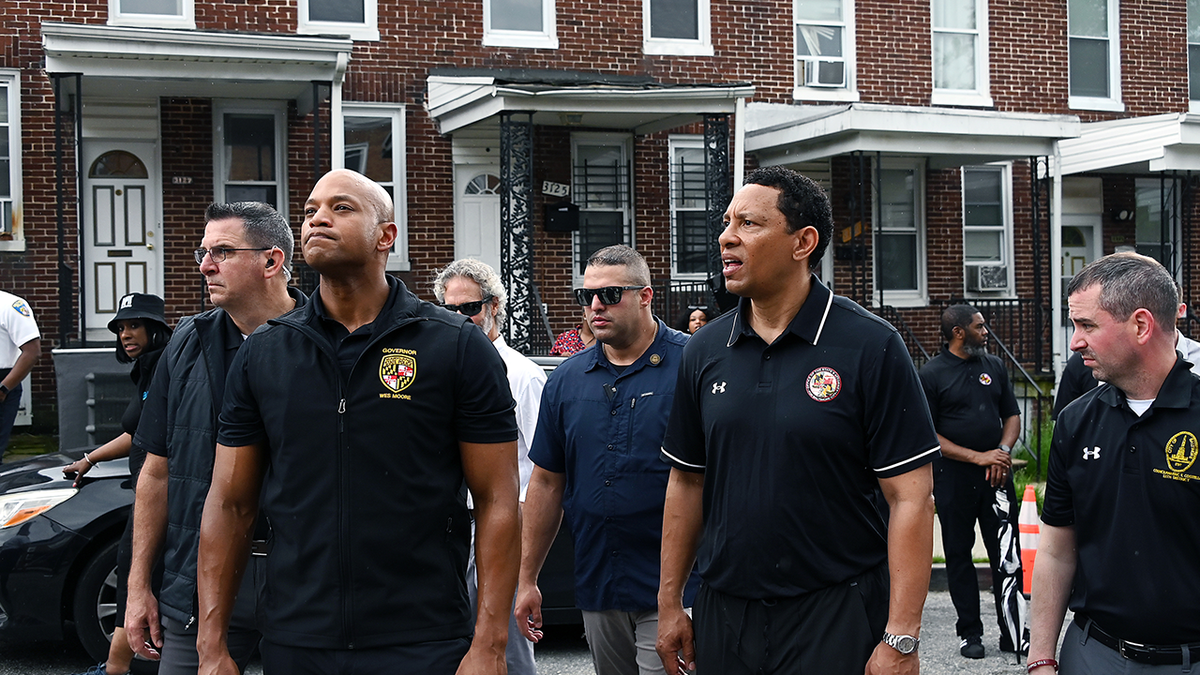
Gov. Wes Moore and Ivan Bates, State's Attorney for Baltimore City, survey houses in the Four by Four neighborhood during a Community Walk with Baltimore Mayor Brandon Scott, officials and community members. On the right is Eric Costello, District 11 council member. (Kim Hairston/The Baltimore Sun/Tribune News Service via Getty Images)
He credits this strict enforcement, backed by close collaboration with police and federal prosecutors, with the city’s falling murder rate.
Bates said that the results speak for themselves. In just two years, his office sent 2,129 repeat violent offenders to prison — double the amount under the previous administration.
"We focused on those individuals that carried illegal handguns… they were not allowed to have a gun," Bates said. "Forty percent of that group were victims of murders, but they were also the perpetrators of murders. If they're not here right now in the community, now they cannot be victims of murders and they cannot [be] the murderers."
According to data from the Balitmore Police Department, homicides fell 23% by year end of 2024 (201 vs. 261 in 2023) and non-fatal shootings dropped 34% (414 vs. 635). BPD also reported clearance rates above national averages in several categories.
The data also showed that through June 30 of 2025, homicides were down 22% (68 vs. 88) and non-fatal shootings down 19% (164 vs. 204). BPD reported a 64% homicide clearance rate and 44% non-fatal shooting clearance rate, plus over 1,300 firearms seized, including 150 ghost guns.
City officials emphasize that while murders and shootings are dropping, work remains to reduce other categories of violence and crime.
"Our continued progress is the direct result of the comprehensive, evidence-based public safety strategy that we have implemented in partnership with residents," Mayor Brandon M. Scott said in a news release. "While we acknowledge the historic lows we are experiencing, we must simultaneously acknowledge that there is much more work to do, and our success makes me commit even further to doing it."
For decades, Bates said that Baltimore’s justice system had a reputation for leniency, but now, that has changed.
"There is no magic pill. You just have to really hold people accountable," he explained. "When they know that they will go to jail, their attitudes change greatly."
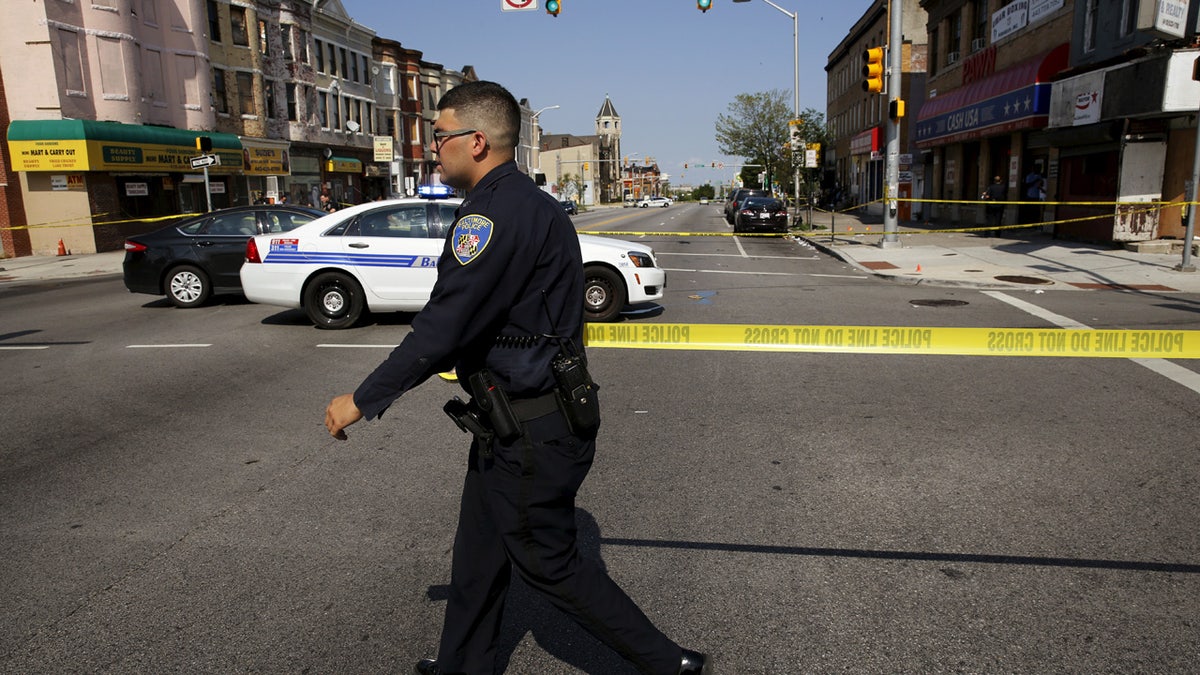
A Baltimore police officer attempts to secure a crime scene with tape at the scene of a shooting at the intersection of West North Avenue and Druid Hill Avenue in West Baltimore, Maryland. (REUTERS/Jim Bourg)
In contrast to the past — when violent felons could expect probation or dismissal — Bates says his office now takes those cases seriously.
"Prosecutors have to put people in jail who are bad people with guns. We have to understand that. It's just that simple."
Bates stressed that reducing crime also requires rehabilitation and economic stability.
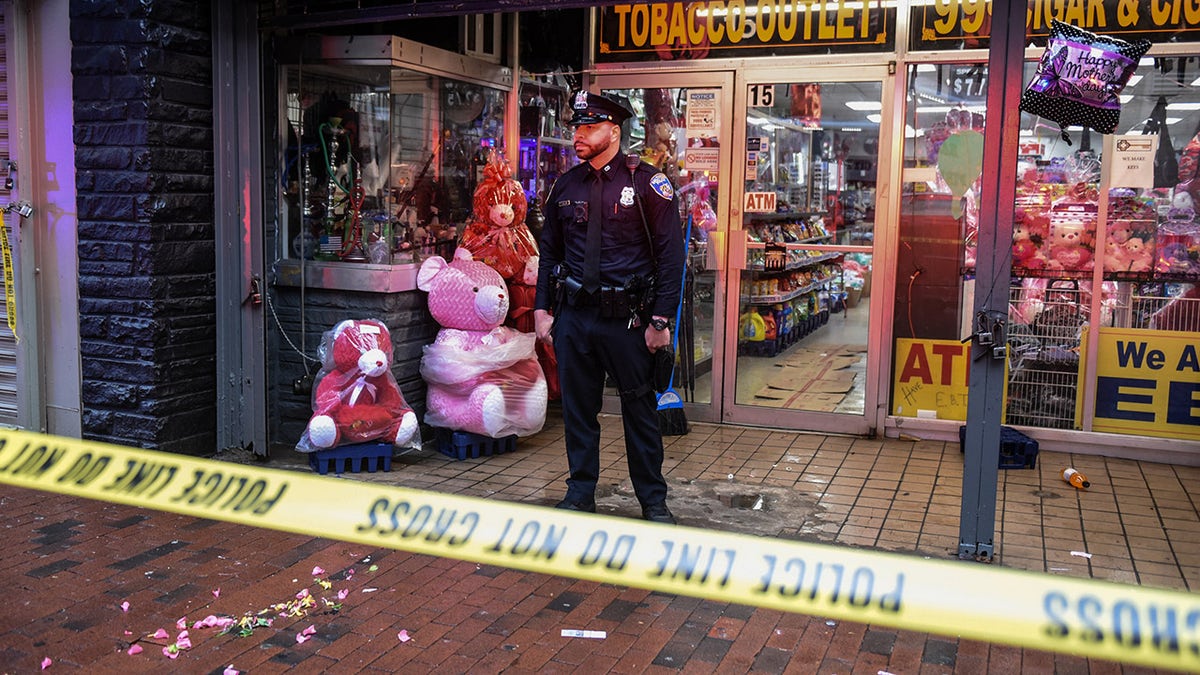
A member of the Baltimore Police Department stands guard at a crime scene on Mother's Day in the downtown area in Baltimore, Maryland, U.S., May 12, 2019. (Stephanie Keith/Reuters)
"We want to make sure that while they're incarcerated, they actually have the opportunity… GED, job skills and training… so that when they come home, they can actually have a job that will pay them a real wage," he said. "If you can't read, you don't have a degree, what are you gonna do?"
Beyond tough sentencing, Bates points to structural reforms within his office, as he says they have grown significantly to handle the caseloads.
"When we came into the office, there were only about 140 prosecutors… Now we have 200."
He also hopes for additional federal grants to expand even further.
Bates underscored that crime reduction isn’t a partisan issue.
"At the end of the day, we're focused on public safety because public safety doesn't know any party. It should always know what's best for the public," Bates said.
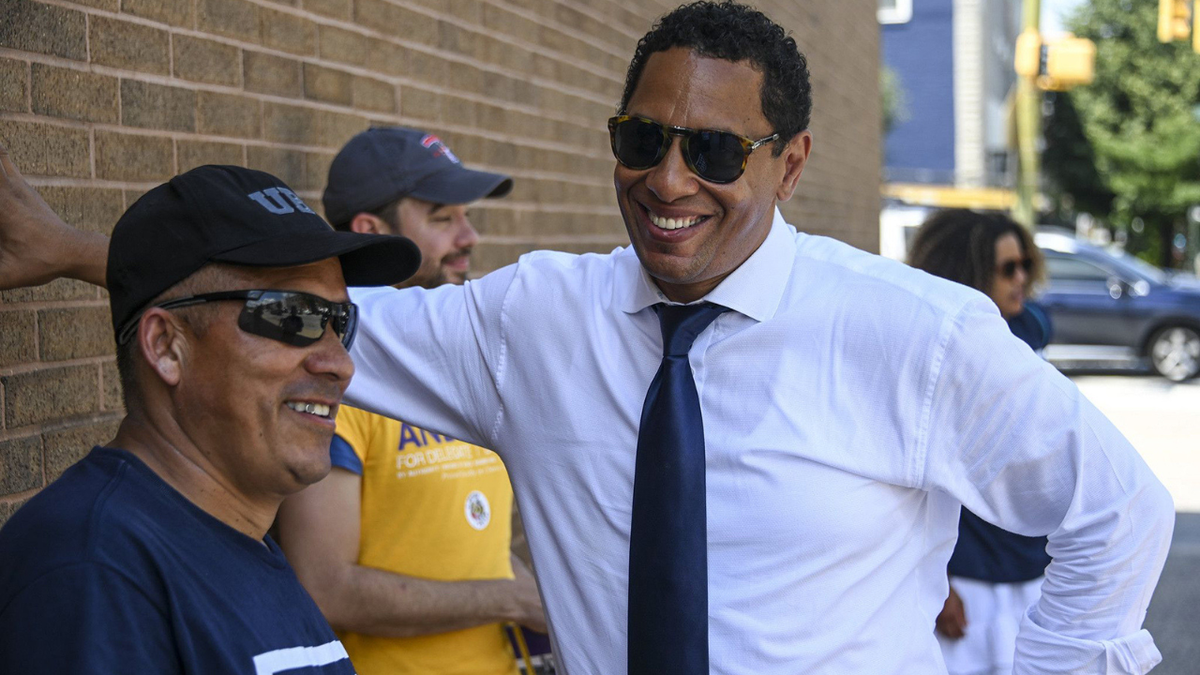
Baltimore City States Attorney Ivan Bates shares a laugh with members of his team outside the William Pace Elementary voting location on Tuesday. (Kevin Richardson/Baltimore Sun/Tribune News Service via Getty Images)
With murders declining, Bates believes Baltimore can restore public confidence and attract investment back into the city.
"People have hope… we're moving in the right direction… especially when it comes to violent crime," he said. "We need more individuals moving to Baltimore and not moving out… The number one thing is we have to focus on safety."
Bates sees the progress as a model for other cities — especially those struggling with soft-on-crime policies.
"The most important person for fighting crime is your prosecutor… If the prosecutor says everybody goes home, then there's turnstile… but once you go and show you are not playing, people change their attitude," he said. "When you take the shooters and killers off the street, it's gonna go down."
Stepheny Price covers crime, including missing persons, homicides and migrant crime. Send story tips to stepheny.price@fox.com.
